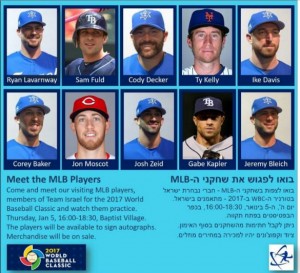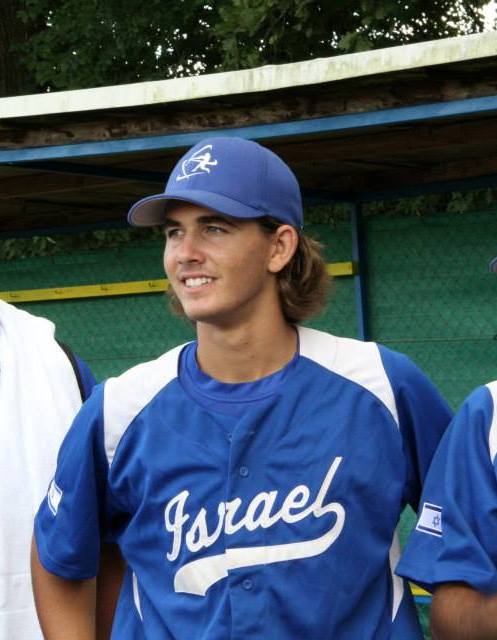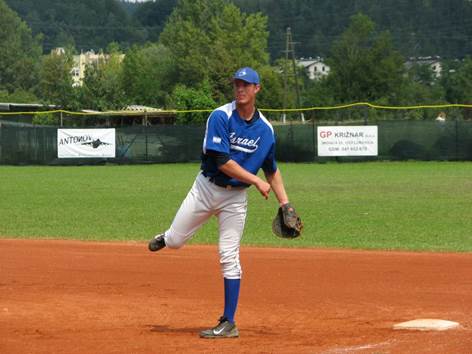Players, film crew head to Israel tomorrow

Trailed by a documentary film crew, 10 Jewish ballplayers will be touring Israel from January 3-10, 2017
By Stuart M. Katz, correspondent
When centerfielder Sam Fuld and nine other Jewish athletes head to Israel on January 3 for what might be dubbed a ‘Baseball Birthright’ trip, they won’t be alone.
Wives, parents, sons, and a fiancée will be traveling with this minyan of Major League players and prospects, all of whom plan to represent Israel at the World Baseball Classic taking place in South Korea in March 2017. Team Israel qualified for the quadrennial contest by winning a qualifying tournament in September.
Also coming along for the ride? A film crew.
MLB.com reporter Jonathan Mayo (Twitter) and Ironbound Films co-founder Jeremy Newberger (Twitter) plan to create a documentary titled Heading Home about the one-week trip. For most of the players, it will be their first visit to the Jewish homeland.
“The idea for the film came first,” Mayo told Jewish Baseball News. “It wasn’t originally planned around the WBC, but after Team Israel qualified, it all came together.”
Mayo said he and Newberger, childhood friends from camp Young Judea, are getting a lot of help. Driving forces behind the project include the Jewish National Fund’s Project Baseball, JewishBaseballMuseum.com founder Jeff Aeder, and Ron Dermer, Israel’s ambassador to the United States.
Although plans for the film have not been finalized, Mayo expects the documentary will be screened at film festivals and air on MLB.com.
Fuld, who sat out the Oakland Athletics’ 2016 season with a rotator-cuff injury, will be joined on the trip by Ty Kelly of the New York Mets, Josh Zeid of the New York Mets’ organization, Ryan Lavarnway of the Athletics’ farm system, Jon Moscot of the Cincinnati Reds’ system, free agents Ike Davis and Cody Decker, former MLB outfielder Gabe Kapler (now director of player development for the Los Angeles Dodgers), St. Louis Cardinals prospect Corey Baker, and former MLB prospect, Jeremy Bleich, currently playing in the Dominican Winter League. Danny Valencia of the Seattle Mariners planned to come but had to drop out for family reasons.
A key motivation behind the trip and documentary is to build support for baseball within Israel, where soccer and basketball are king. The Israel Association of Baseball, hopes to recruit new players as well as raise funds to expand the country’s meager baseball infrastructure.
In addition to visiting Masada, the Dead Sea, an Israeli Air Force base, the Old City in Jerusalem and Independence Hall in Tel Aviv, the 10 ballplayers will conduct public practices and meet local dignitaries and ballplayers.
# # #
![]() Stuart M. Katz is a die-hard Yankees fan. An attorney at Cohen and Wolf in Bridgeport, Conn., he chairs the firm’s Litigation Group, practicing mainly employment law, and represents employers as well as executives.
Stuart M. Katz is a die-hard Yankees fan. An attorney at Cohen and Wolf in Bridgeport, Conn., he chairs the firm’s Litigation Group, practicing mainly employment law, and represents employers as well as executives.














